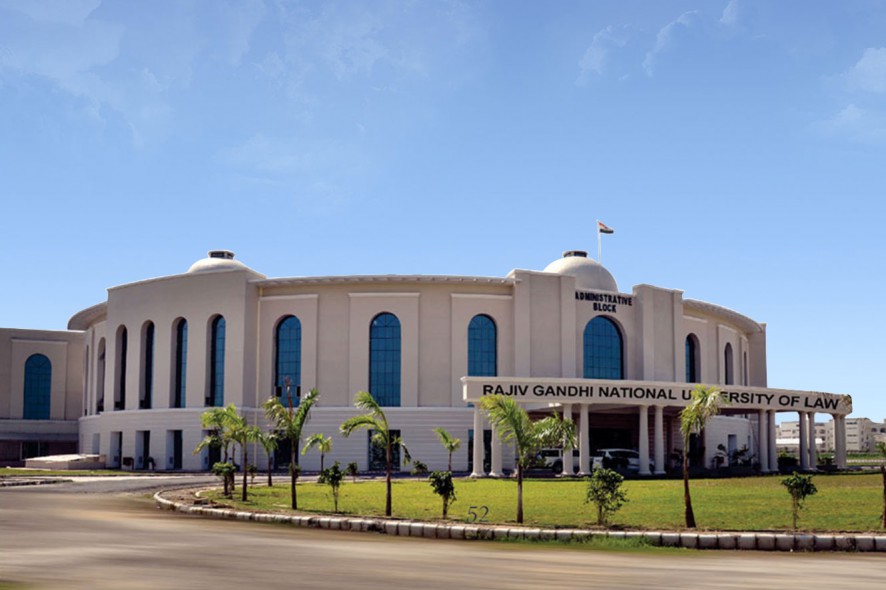The RGNUL Student Research Review (RSRR) is a bi-annual, student-run, blind peer-reviewed legal journal based at Rajiv Gandhi National University of Law, Punjab. In addition to this, RSRR began with its RSRR Blog Series in 2017.
The Editorial Board seeks to publish its ‘Call for Blogs’ through your website, so as to spread awareness among law students, academicians, and professionals and welcome their contribution to the upcoming edition.
About RSRR
RGNUL Student Research Review (RSRR) is a bi-annual, student-run, blind peer-reviewed legal journal based at the Rajiv Gandhi National University of Law, Punjab. The RSRR Blog was established in 2017 as a medium of voicing opinions and sparking discussions. The RSRR Journal and Blogs aim to publish comprehensive treatments of subjects from academicians, practitioners, legal luminaries and students.
The Editorial Board invites submissions for the RSRR Blog Series on “Challenging the Regime of National Security Laws”.
Background
National Security Laws are very crucial for any country in its defence and security arenas and adds to the strength of the country in dealing with adversities for the nation. The recent turn of events like the repeal of the special status of Jammu and Kashmir invoke a heightened check on the proper application of the national security laws. Moreover, the policies and bilateral or multilateral agreements that have been signed by India also form a part of the national security. In situations, where imminent security concerns arise, it is important that such laws do not overshadow the basic human rights of people in the pursuit of protection of the State and a balance is struck.
This blog series aims to foster discussion on the validity of the national security policies of India, the legislations and their underlying principles from an analytical perspective and to provide constructive solutions for better legislations in a safer world.
Sub-Themes
- Constitutionality of National Security Legislations like UAPA, NIA, PSA (applicable to Jammu and Kashmir) along with their Merits over TADA and POTA
- Use and Misuse of AFSPA: A failed application of 60 years?
- Comparative Analysis of Best Practices Worldwide vis-a-vis Indian laws on National Security
- Growth of National Security Concerns and Violation of Human Rights: Balancing the Interests
- The Hooda Document: Expanding the contours of ‘National Security’
- Underlying Principles and Concepts in National Security Legislations: Need for Uniformity and Clarity
- Effectiveness of Cyber Laws in restricting Cyber Crimes vis-à-vis National Security Concerns
- Fake News, Disinformation and threats to National Security and Possible Solutions
- Indian Abidance to the standard of National Security in International Conventions and Treaties
- No First Use Policy: A Viable Perspective?
- Army Act, Navy Act and Air Force Act: Treatment of Enemies a National Security Concern?
- Analysis of Military Support Agreements by India in view of strengthening National Security (Eg: Logistics Exchange Memorandum of Agreement, Acquisition and Cross-Servicing Agreement, etc.)
- Chief of Defence Staff and its effect on National Security Mechanisms in India: Comparative analysis with the US, UK and France
- RTI and National Security Concerns in light of Tshwane Principles
- A Need to Overhaul the National Security Council
The submissions are, however, not restricted to the aforesaid sub-themes, provided they fall within the ambit of the main theme.
Submission Guidelines and Procedure
- All submissions must be in Garamond, font size 12, spacing 1.5.
- All endnotes should be in Garamond 10, single-spaced.
- Margins: Left 1.5 Inch, Right 1 Inch, Top 1 Inch, and Bottom 1 Inch.
- Word Limit for each post is a maximum of 1500-2100 words(exclusive of endnotes).
- Authors are required to provide an abstract of around 100-150 words along with keywords that represent the essence of the submission. The abstract is to be submitted along with the article, itself.
- Please ensure the inclusion of endnotes instead of footnotes.
- A uniform style of citation is necessary for acceptance.
- The manuscript should be accompanied by a cover letter specifying the author’s name, designation, institute, contact number, and email for future reference. [Authors are requested to not put their name anywhere in the main manuscript].
- All entries should be submitted in .doc or .docx format.
- The manuscripts must be e-mailed to submissionsrslr@rgnul.ac.in.
- The subject of the e-mail should be titled “Submission for RSRR Blog Series: National Securities Law”.
- Entries that will be selected after the review stages shall be published on the RSRR Blog Series.
- E-certificates will be awarded to the authors of each published blog.
- Co-authorship of a maximum of 2 is permitted.
- The author(s) bear sole responsibility for the accuracy of facts, opinions or views stated in the submitted Manuscript.
- In the case of gross plagiarism found in the contents of the submitted manuscript, the manuscript shall be subject to rejection.
- Copyright of all blog posts shall remain with RGNUL Student Research Review.
- All Moral Rights shall vest with the author(s).
For further details, click HERE
Deadline
The last date of submission is 23rd December 2019.
Contact
In case of any query, contact submissionsrslr@rgnul.ac.in.
RSRR’s website can be accessed at www.rsrr.in.
Previous Blog Series are available at http://rsrr.in/blog/







